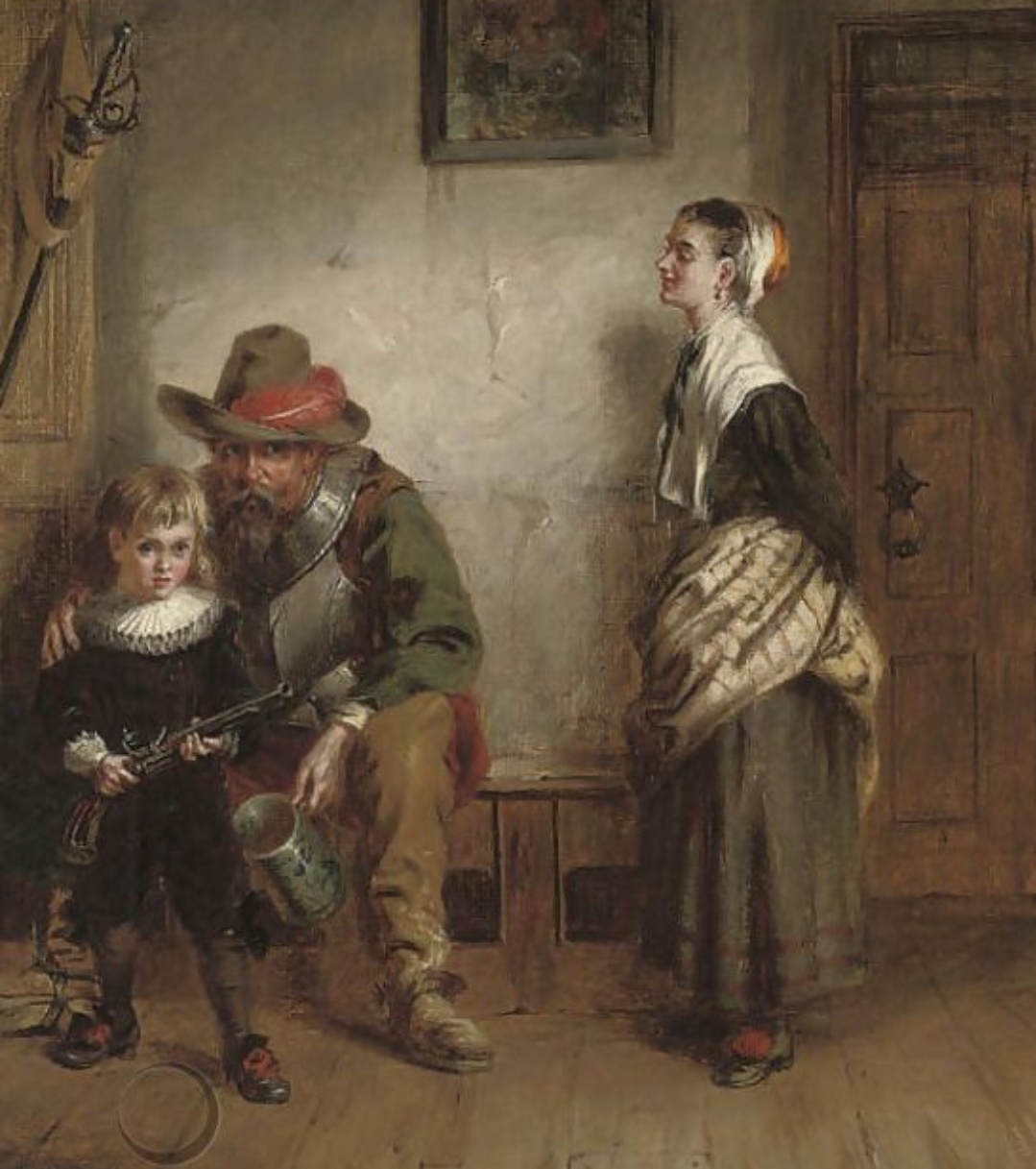What is foundational to civilization? How integral to Western Civilization is Christianity? These are questions that need discussion and answers. The answers are right there in our past and still with us today. The real meaning of archaic is a positive one, it’s best translated as “foundation” and “beginning.” Archaic does not mean backward-looking or wasteful nostalgia for the past. We need a civilization that reinvigorates eternal truth, cultivates virtuous people, and nourishes beautiful institutions. Of course, our current civilization does none of those things. Here is a vision for the future, both politically and culturally.
The beginning of Western Civilization wasn’t Christian, but I’d argue its high watermark certainly was. The High Middle Ages would be perhaps the best example of an era that, in most regards, formulated itself as what would be called Christendom. The meme about everything being so much better back then for most people is like many memes – simplistic and not completely truthful. I like being able to clear an infection and heal a broken arm, etc. Research and communication are inherently more accessible and accurate for those so inclined.
However, there are many facets of society that were indeed very civilized in the High Middle Ages. There was an ordered structure to life, many positions of power had real authority with the requisite responsibilities. Life was more honest. These social characteristics lead to communities that had a key difference when compared to ours: there was trust between fellow peoples. This lead to some sort of harmony with the nobility, clergy, and peasantry. A commoner didn’t work as long as most plebs do today – neither in total days nor aggregate yearly hours. There was debt forgiveness and many built-in holidays for all. Famine and pestilence were real existential threats, but today we have tools that can remedy most of those problems.
What is the beginning of civilization? A structured society that cultivates families. Why do we incentivize divorce and/or fatherlessness? I can’t imagine any other so-called civilization that would do such a thing. A culture that glamorizes single motherhood and female careerism is a dying, soulless one. Women that truly want to work – should. But, not at the expense of being a good mother. The ideal has to be maintained and cherished, not scrutinized destroyed. A civilization without the “Great Mother” archetype is a dead one. Christianity helped encourage good and noble motherhood, and, by extension, fostered families that grew and prospered. Christianity of the Medieval Age wasn’t feeble and emasculated, it was vigorous and heroic.
Christianity didn’t bring down the grandeur of Rome. Rome was undone before Christianity proliferated within the Empire. Rome had been rotten for quite some time. Edward Gibbon was very wrong in his conclusions. Not surprisingly, he was an atheist. Like Voltaire, he had nothing good to say about the Church.
Technology has changed the way we think and interact with the world around us. It is quickly becoming more than a tool. With the way it’s going it will change aspects of our own humanity. Maybe that happened with the bicameral mind, or in some rendition of the origin of consciousness itself. Except in this seismic change, we can curate this change or use of technology; whereas, with consciousness, it likely simply happened. There are technologies and techniques (any act or thing that pushes for efficiency as the highest end) that can help or complement our humanity and civilization, and there is technique that distorts our civilization. If you think about it for a moment or two you will come to obvious examples of soulless techniques.
The fact that I can write this essay on a computer and send it to you, and that you can read it if you so choose is a wonderful thing in and of itself. So, how should technology be used by a new Christendom? It should be used to enhance civilization. And, at the very least, not be used to destroy it. Technology should have a goal or purpose and the goal shouldn’t be consumerism. When we passively consume (which we all do), we are participating in slow but destructive action. The purpose of it seemingly is entertainment or distraction, but in reality, it is actively destroying your soul and our civilization.
Can we build technology that is both symbiotic and enriching, I believe so and that is why I am not a traditionalist per se, or a reactionary. I’m too much of an idealist and romantic for that. Can you imagine married space priests going to colonies on the Moon or Mars to help build a civilization there? I can, but we need to work on our civilization here, before we can reach for the stars and not get burned like Icarus of old. There’s a way Christendom can take and compliment even pre-Christian truths and fuse them together. In many ways, the Arthurian legends attempted to reconcile and amalgamate Celtic myth with Christianity. I see us in a way doing the same with future engineering and exploration adventures.
We can have families in the future that are both Christian and futuristic – both traditional or archaic, and prosperous and heroic. These things do not have to be mutually exclusive. Institutions have to be manned by virtuous men that act accordingly and deserve their positions of authority. We do need common cause and metaphysics that speaks to most, if not all. Work shouldn’t be soulless, just like technology shouldn’t be either. Some of our technology can be burnt away like the deadwood that it is. Growth usually entails some pain, and these are the things that give man purpose. Not simply an individualistic cause, but a communal purpose as well. No one comes into this world alone and no one can exist in it solely as an individual.
For Christendom to begin anew, we will also need steadfast alliances with like-minded cultures and peoples. Look around the world and you can see Russia is more like the West of old than China ever was or will be. In the great game of geopolitics, one needs allies. Christendom provides those. Russia is a Christian nation and America certainly is as well. Why not encourage mutual cooperation between the two great states that would add to the development of a fruitful relationship for both parties? How could we begin such a project? The creation of a hyperlink speed train connecting Eastern Russia with Alaska sounds like a worthwhile endeavor. Transporting natural resources between mutual partners is one way how friendships are born.
Local rule and subsidiary are generally correct ways to run a society on the ground level. However, to have a sustainable future, Westerners, Europeans, Christians etc. will have to ally together in mutual cooperation for the defense of civilization itself. Without something binding local people together (Christianity), we don’t stand a chance against the geopolitical realities of the world today.
Globalism and “one-world government” etc. have a bad name and generally for good reasons. Nonetheless, cooperation, trade, and interconnectedness is not a bad thing in and of itself. Much like technology, if curated correctly and for just ends, these things can lead to a prosperous future for all parties involved. If we embrace Christianity, and better yet the foundations of it, and seek out fellow peoples around the world that embody similar motivations and purposes, then we are on the way to a future that is hopeful yet possible.

God, Family, & Homeland
The Beautiful will lead you to the Good & the True






The more hatred I get for Christian Identity, the more I think it’s true.
Christian’s must also refute any global “Absolutist” “Messianic” hereditary Monarchy (2 Thess 2:11) (especially any monarchy not of your kin (Deuteronomy 17:15) if you desire for a monarch, but heed (Samuel’s warnings!) as despotism and destruction will follow as political economy and wealth is monopolized to the monarchy and his oligarchy (priests) https://www.abbevilleinstitute.org/blog/poison-under-the-wings/), …for a historical antecedent, see the Atenist monarchy of Egypt that destroyed Egypt of which never returned to her former glory) ,
… contra the hereditary monarchy, see 1 Samuel 8:7 and Numbers 23:19 with John 4:24 and John 20:17) if you truly are following your Confederate ancestor’s who belief in sovereign Southern ethno-nation’s.
I don’t think you understand Christian Identity.
Jesus is the Monarch.
right, because 8-year dictators and two parties creating a fake dichotomy to enslave the people is much better. alongside a dizzying array of thousands of denominations for varying degrees of profit.
the confederate ancestors ate from the manna of democracy, and died. Christ is the King of the Universe.
besides, you could have a semi-elective monarchy, in which every 25 or so years a vote of confidence is carried out. might also add that the royal family should be made to breed with commoners every so often (to avoid genetic impoverishment and otherization of the elites), and carry out many duties among the people. some medieval kings even did penance before acceding the throne.
of course, there will still be some sort of States General Assembly, which in this day and age could be virtually accessed and voted on by all the eligible subjects, in a sort of direct democracy. you might say that these old time assemblies favored elites too much, but this need not be so, provided all corporate bodies of society were and are included in the votes: in this day and age, not just trusts and corporations but unions and guilds, not just colleges and non-profits and leeches but churches and communities and families, not just big cities but also the hinterland. i’d also argue having an IQ test for being a civil servant or even voting in these hypothetical referendums would be much easier to impose under a monarch.
but hey, just throwing around ideas, i guess Our Lord has tolerated and/or liked some democracies too (i.e. Irish Free State). it’s hard for power not to become too big for the democratic process to handle though, specially among the current crop of degenerate voters that are being owned by democratic oligarchies much harder than any noble or king owned a peasant. so eventually it will be a choice between semi-elected but based European strongmen/kings ruling over ordered technified nations of subsidiarity-practicing local communities through organic referendums and very occasional elections at most; or committees of feminized mystery meats globalists and Marxoids ruling from Blade-Runner city enclaves the covid-muzzled and chipped masses through fake uniparty democracy (or outright prolebureaucrat dictatorship).